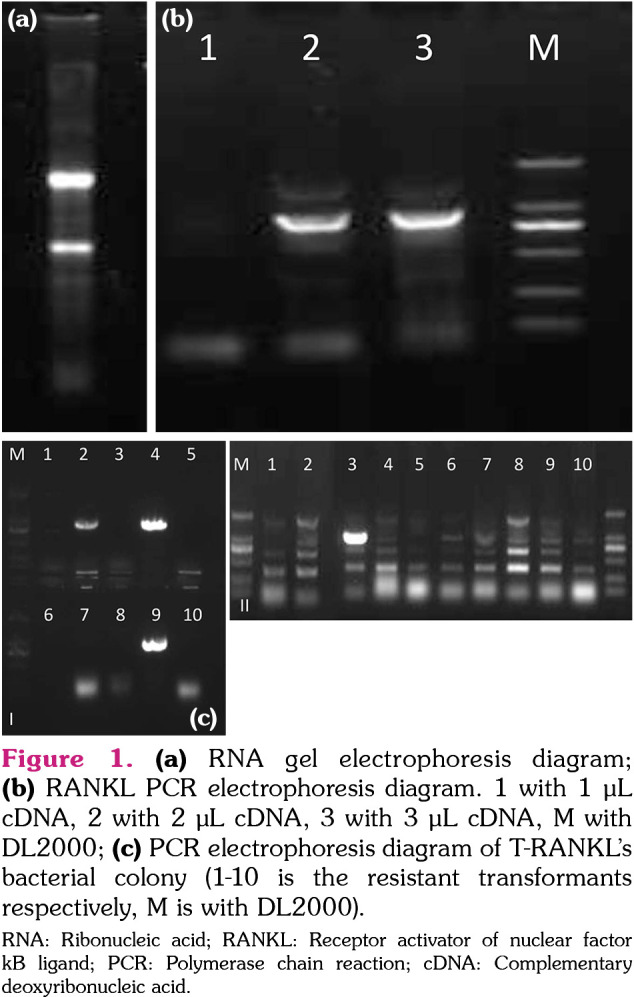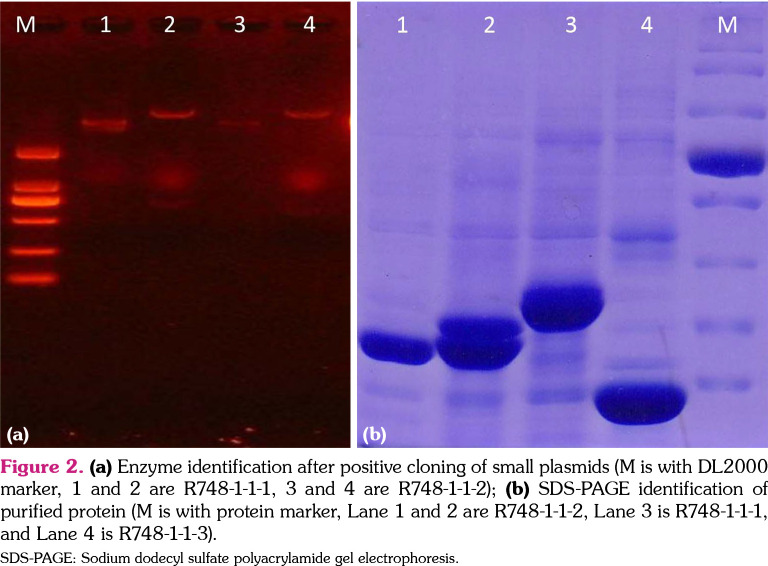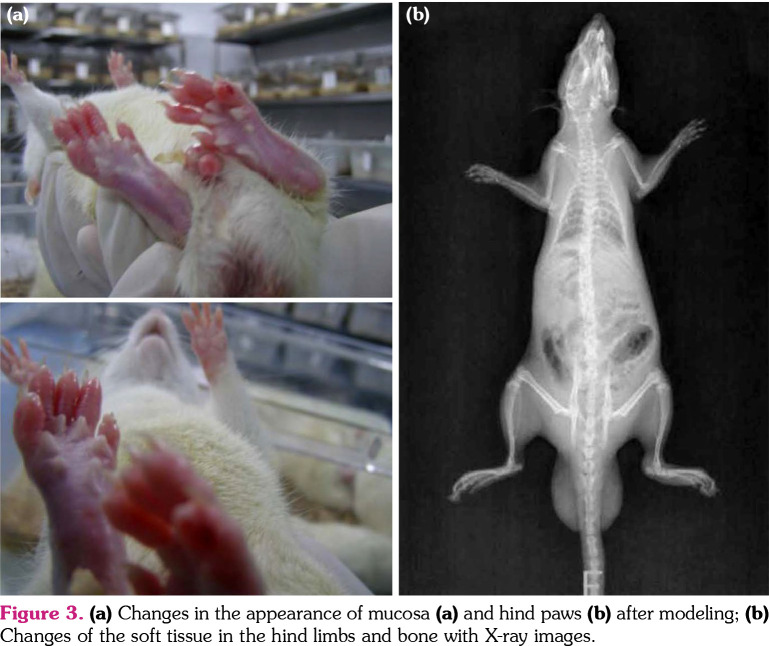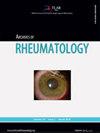Evaluation of the anti-RANKL monoclonal antibody in rheumatoid arthritis rats.
IF 1.1
4区 医学
Q4 Medicine
引用次数: 0
Abstract
Objectives In this study, we aimed to investigate the therapeutic effect of anti-receptor activator of nuclear factor kappa-κB ligand (RANKL) monoclonal antibodies R748-1-1-1, R748-1-1-2 and R748-1-1-3 on rheumatoid arthritis (RA) in a rat model. Materials and methods Gene cloning, hybridoma technology, affinity purification, enzyme-linked immunosorbent assay, general observation, hematoxylin-eosin staining, X-ray, and many other experimental techniques were used in this study. Results Improved collagen-induced arthritis (CIA) modeling was successfully constructed. The RANKL gene was cloned and the anti-RANKL monoclonal antibody was prepared. Following treatment with the anti-RANKL monoclonal antibody, the soft tissue swelling of the hind paws, the joint thickening, the narrowed joint gap, and the blurred edge of the bone joint were improved. The pathological changes such as synovial hyperplasia of fibrous tissue, cartilage and bone destruction were significantly decreased in the anti-RANKL monoclonal antibody-treated CIA group. Compared to the normal control group and phosphate buffer saline (PBS)-treated CIA group, the expression of tumor necrosis factor-alpha (TNF-α) and interleukin-1 (IL-1) in antibody-treated CIA group, positive drug-treated CIA group, and IgG-treated CIA group were decreased (p<0.05). Conclusion The anti-RANKL monoclonal antibody can promote the therapeutic effect of RA rats, indicating that the anti-RANKL monoclonal antibody has a certain potential value and may be beneficial to the further study of the mechanism of RA treatment.



类风湿性关节炎大鼠抗rankl单克隆抗体的评价。
目的:研究核因子κ b配体抗受体激活剂(RANKL)单克隆抗体R748-1-1-1、R748-1-1-2和R748-1-1-3对类风湿关节炎(RA)大鼠模型的治疗作用。材料和方法:本研究采用基因克隆、杂交瘤技术、亲和纯化、酶联免疫吸附法、一般观察、苏木精-伊红染色、x射线等多种实验技术。结果:成功构建了改良型胶原诱导关节炎(CIA)模型。克隆RANKL基因,制备抗RANKL单克隆抗体。经抗rankl单克隆抗体治疗后,后爪软组织肿胀、关节增厚、关节间隙缩小、骨关节边缘模糊等症状得到改善。抗rankl单克隆抗体处理的CIA组纤维组织滑膜增生、软骨和骨破坏等病理改变明显减少。与正常对照组和PBS处理CIA组比较,CIA抗体处理组、CIA阳性药物处理组和CIA igg处理组肿瘤坏死因子-α (TNF-α)、白细胞介素-1 (IL-1)表达均降低(p)。抗rankl单克隆抗体可促进RA大鼠的治疗效果,表明抗rankl单克隆抗体具有一定的潜在价值,可能有利于进一步研究RA的治疗机制。
本文章由计算机程序翻译,如有差异,请以英文原文为准。
求助全文
约1分钟内获得全文
求助全文
来源期刊

Archives of rheumatology
Medicine-Rheumatology
CiteScore
2.00
自引率
9.10%
发文量
15
期刊介绍:
The Archives of Rheumatology is an official journal of the Turkish League Against Rheumatism (TLAR) and is published quarterly in March, June, September, and December. It publishes original work on all aspects of rheumatology and disorders of the musculoskeletal system. The priority of the Archives of Rheumatology is to publish high-quality original research articles, especially in inflammatory rheumatic disorders. In addition to research articles, brief reports, reviews, editorials, letters to the editor can also be published. It is an independent peer-reviewed international journal printed in English. Manuscripts are refereed by a "double-blind peer-reviewed" process for both referees and authors.
Editorial Board of the Archives of Rheumatology works under the principles of The World Association of Medical Editors (WAME), the International Council of Medical Journal Editors (ICMJE), and Committee on Publication Ethics (COPE).
 求助内容:
求助内容: 应助结果提醒方式:
应助结果提醒方式:


